Desert crocodile: A huge reptile learned to live among the sands, and the Egyptians praised him as a god 2000 years ago (10 photos)
The legends did not lie, the ancient god was reborn and returned to our world! Fall on your face before his greatness and power, worship him! Well, or at least leave him alone, the desert crocodile has had enough of it in life. 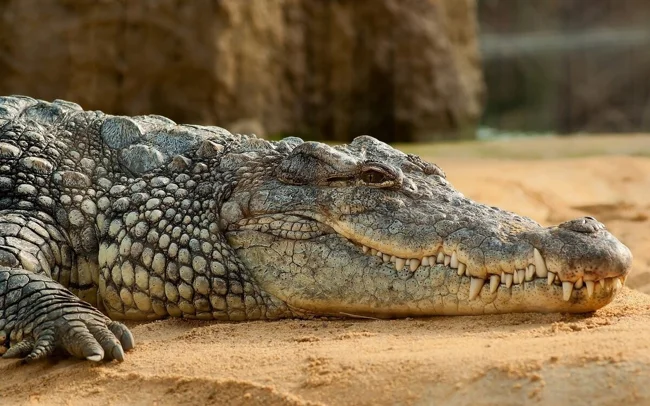
The ancient Egyptian priests also said that not only Nile crocodiles live in Egypt. Moreover, they revered mythical reptiles as calm and balanced animals that protect their territory from attacks and the world from evil spirits. 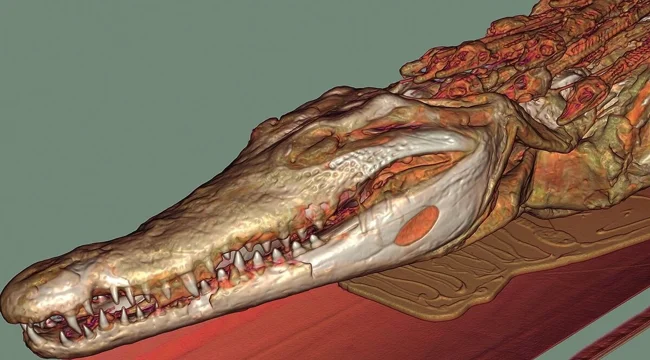
Some crocodiles were mummified along with their cubs. Perhaps by this they wanted to emphasize that Sebek (God of water and the flood of the Nile) protects them and takes care of them in the same way as a crocodile takes care of its cubs.
Eventually they came up with Sebek, a crocodile-headed god who personified these qualities and was responsible for a bunch of aspects of Egyptian life. The crocodile god was most infatuated in Faiyum; this city was so strongly associated with reptiles that Greek authors nicknamed it Crocodilopolis. 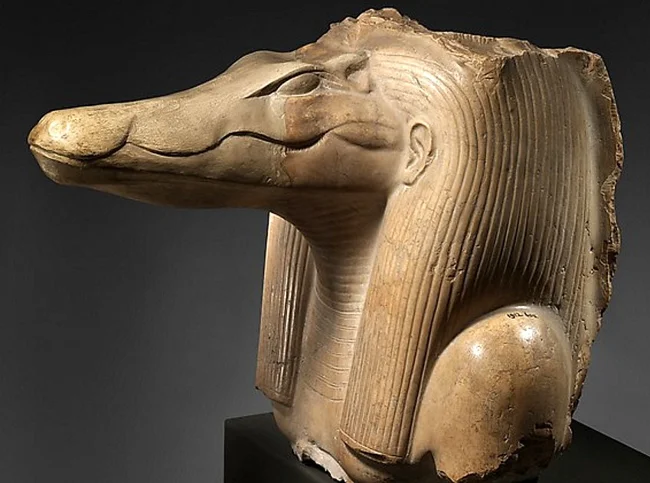
And here is Sebek himself, meet him.
But modern man is like: “Several ancient civilizations have been writing about an unknown species of crocodiles for thousands of years? Surely this is just a myth! As a result, science ignored the existence of the West African crocodile, also called the desert crocodile, for centuries. 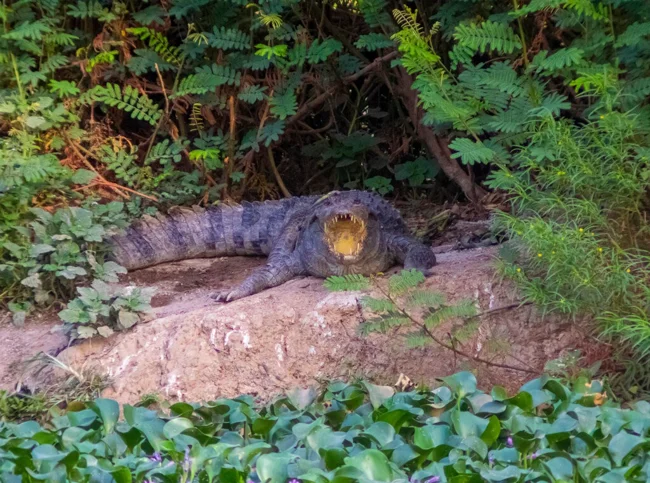
Only in the 19th century did people begin to pay attention to the knowledge of their predecessors. French zoologist Etienne Geoffroy Saint-Hilaire (what a name, you'll break your tongue) examined the skulls of mummified reptiles, found many differences from the typical Nile head and came up with a Latin name for the new species. It's just a pity that no one believed him. The Frenchman's theory was rehabilitated in 2011, studies showed that all mummies belong to the species that we missed. 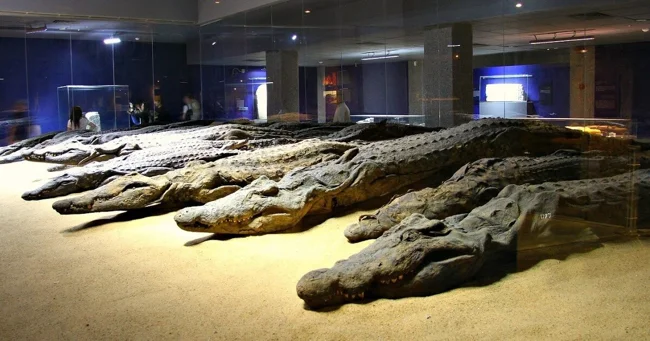
Do you know how old these mummies are? Almost 2000!
But the sand crocodiles themselves did not float at all, as the stupid people call them. You can no longer find them in Egypt itself, but in the countries of West Africa they live to this day and even partially overlap with their larger relatives. Despite their relatively good disposition, our heroes can still pose a danger to humans, because they are predatory lizards up to 4 meters long! 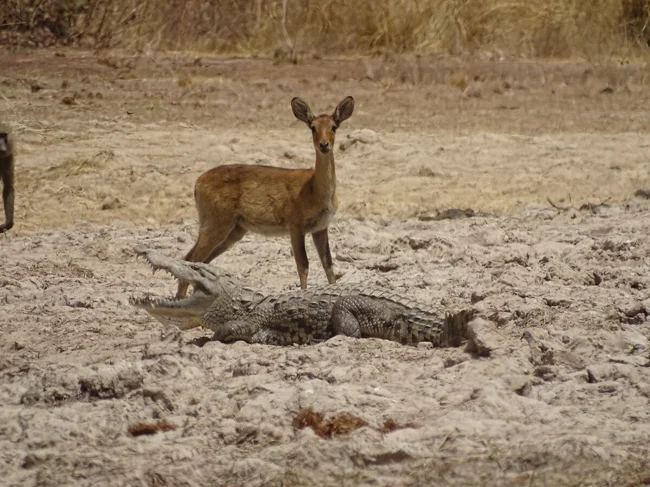
- I will eat you! - No. - OK.
In addition, they have the effect of surprise on their side: the last thing you expect to see is a crocodile in the middle of the desert. After all, there is no water or food there, how do reptiles manage to survive? In fact, there are plenty of these resources; you just need to learn how to use them wisely. 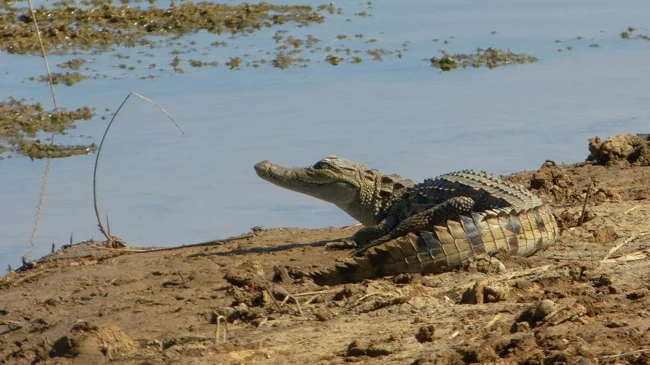
However, not all crocodiles live in deserts. Some of them prefer swamps or forests.
Over hundreds of thousands of years of evolution, greenskins have rearranged their metabolism so that in case of drought, they can hide in a cave or hole and hibernate for many months. When it rains in the sandy ocean, crocodiles sense that they have “turned on the water” and crawl out to huge puddles and temporary rivers. The few inhabitants of the desert also come to them - an ideal snack for rainwater. 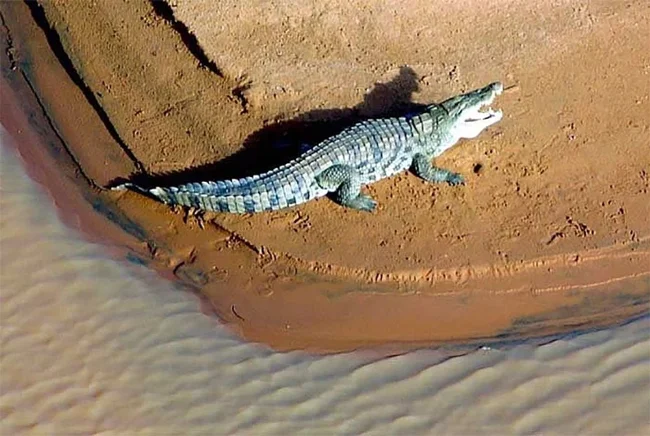
Local residents have noticed a connection between the lakes and desert crocodiles; they treat the reptiles with respect and protect them in every possible way. The belief has been passed down from generation to generation that without crocodiles, rivers and other sources of water will dry up. 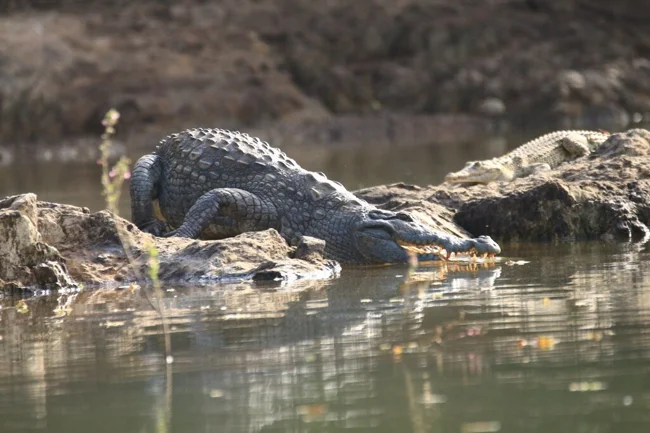
Protects water bodies as best he can. Including from you.
Unfortunately, legends are of little help - no sooner have we discovered a new species than we risk losing it. Scientists have found that the desert crocodile has become extinct in more than 85% of its original habitat and the population continues to decline. The reason for this is human hunters and competition with its Nile counterpart. 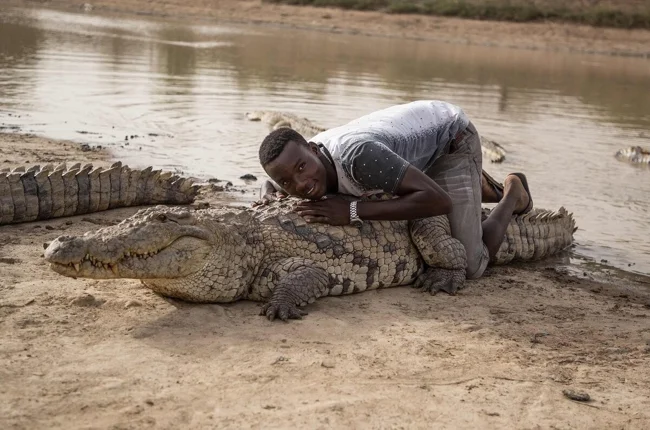
The saddest thing is that no one is guarding the crocodile. The bureaucratic machine is too slow and has not yet recognized the West African crocodile as an endangered species. The ancient god can only hope for the mercy of people and shed crocodile tears during times of veneration and worship.
